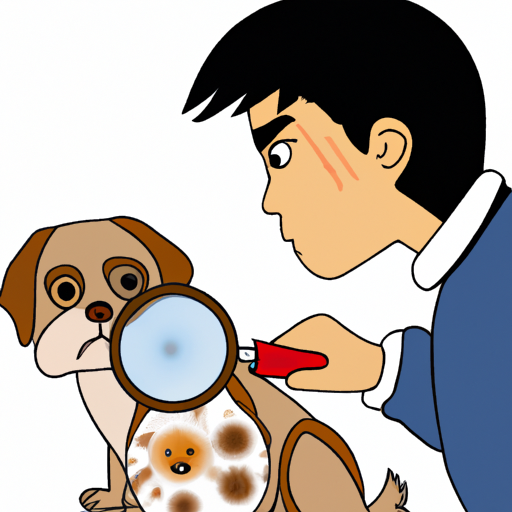As a devoted caregiver, it’s essential for you to understand the health issues that may affect your furry friend. One such issue is fungal infections in dogs. In this comprehensive guide, we will delve into the causes, symptoms, and ways to prevent these infections.
Understanding Fungal Infections in Dogs
Fungal infections in dogs are primarily caused by fungi, which are microscopic organisms that thrive in moist, warm environments. Dogs can get infected through various ways, which we will discuss in detail in the next section.
Fungi are ubiquitous, meaning they can be found everywhere – in the air, soil, and even on your dog’s skin. In most cases, a healthy dog’s immune system is capable of fighting off these microscopic invaders. However, when the immune system is compromised or if conditions are ideal for the fungi to reproduce, they can cause a range of health problems.
How Dogs Contract Fungal Infections
There are several ways that your furry friend could contract a fungal infection. Below are the key methods:
- Direct Contact: Dogs can get fungal infections by coming into direct contact with fungi. This can occur when they play in areas infested with fungi, such as damp, muddy places or decaying vegetation.
- Inhalation: Fungi spores are airborne. If your dog inhales these tiny particles, they can develop a respiratory fungal infection.
- Ingestion: If your dog ingests fungi, either by eating contaminated food or by grooming themselves, they can get a fungal infection in the digestive tract.
Recognizing the Symptoms of Fungal Infections
It’s vital for you as a caregiver to recognize the symptoms of fungal infections early. Noticing these signs and seeking prompt veterinary care can prevent the infection from spreading. Here are some common symptoms to watch out for:
- Persistent scratching or licking
- Dry, flaky skin
- Hair loss around the infected area
- Coughing or wheezing
- Changes in appetite
- Fever
Treatment and Prevention of Fungal Infections in Dogs
Treatment
The treatment for fungal infections largely depends on the type of fungi involved and the severity of the infection. Some common treatments include:
- Antifungal Medications: These are usually prescribed to kill the fungi and stop them from multiplying.
- Topical Creams: For skin infections, topical creams may be used to relieve symptoms and clear the infection.
- Surgery: In severe cases, surgical intervention may be necessary.
Prevention
As the old saying goes, “Prevention is better than cure”. Here are some steps you can take to prevent fungal infections in your dog:
- Keep your dog’s living area clean and dry.
- Regularly groom your dog and check for any skin abnormalities.
- Avoid taking your dog to places known to be infested with fungi.
- Feed your dog a balanced diet to maintain a strong immune system.
FAQ
- Are fungal infections in dogs contagious to humans?
Yes, some fungal infections are zoonotic, meaning they can be transferred from animals to humans. It’s important to practice good hygiene if your dog has a fungal infection.
- Can a fungal infection go away on its own?
While some mild infections may resolve on their own, it’s always best to seek veterinary advice when you notice any symptoms. Early treatment can prevent the infection from becoming severe.
- How long does it take for a fungal infection to clear up in dogs?
This greatly depends on the type and severity of the infection, as well as the dog’s overall health. Some infections may clear up within a few weeks with the right treatment, while others may take several months.
- How can I boost my dog’s immune system to fight off fungal infections?
A balanced diet, regular exercise, and routine veterinary care can all contribute to a strong immune system. Some vets may also recommend dietary supplements.
Remember, as a caregiver, you play a crucial role in your dog’s health. By staying informed and vigilant, you can ensure your dog stays happy and healthy.



